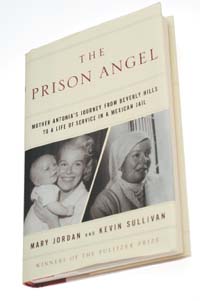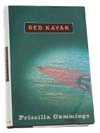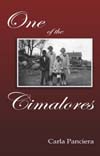 |
 |
| current issue |  |
past issues |  |
send a letter/news |  |
address update |  |
advertise |  |
about us |  |
alumni home |
Previews
Books, music, art, theater, film, and danceby Anne Downey '95G
The Prison Angel: Mother Antonia's Journey from Beverly Hills to a Life of Service in a Mexican Jail, by Mary Jordan and Kevin Sullivan '81
Complicity: How the North Promoted, Prolonged, and Profited from Slavery by Anne Farrow '73, '76G, Joel Lang and Jenifer Frank
Overviews:
Books:
Deborah Straw '70
Priscilla Cummings '73
David Chapin '00G
Robert Booth '69
Carla Panciera '85
Russell M. Lawson, '87GMusic:
David Surette '85Also of Note:
Kathleen Kendall-Tackett, UNH research associate professor of psychology
Tom Asacker '78
The Prison Angel:
Mother Antonia's Journey from Beverly Hills to a Life of Service in a Mexican Jail
See at amazon.com
It is not easy to write about a living saint. But in their engrossing book, Kevin Sullivan '81 and his wife, Mary Jordan, show us both the real Mary Clarke and the selfless Mother Antonia she became after she found her calling in one of Mexico's most violent and overcrowded prisons.

Clarke grew up in the 1920s amidst Beverly Hills affluence. Blessed with Doris Day good looks, she wanted above all else to be a wife and mother; she married twice and had seven children, but her marriages were a disappointment, and both ended in divorce. As a single mother, she worked in real estate to support her family and took solace in Catholicism and volunteer work for the poor.
In 1965, a priest invited her to tour La Mesa, the state penitentiary in Tijuana. She was affected so profoundly by the experience that she started making regular visits, and in 1977, donned a homemade habit and moved in. Initially, she focused on the immediate needs of prisoners: bringing them pillows, finding clean bandages, persuading medical professionals to donate their services..
In time, she became an advocate for fundamental changes in the justice system and better treatment of the poor. "She knew there were many human rights leaders agitating on the outside," write Sullivan and Jordan, "but she always thought she could do the most good on the inside."
She is still there. Over the years, Mother Antonia has been recognized by Mexico and the United States for her work, winning many civic awards. Rejected by religious orders in the '70s because of her age and marital status, she has since been praised by the Catholic Church for encouraging older women to serve. She was blessed by Pope John Paul II in a Mother's Day ceremony in 1990.
Jordan and Sullivan met Mother Antonia while they were covering the Mexican criminal justice system for the Washington Post (they won a Pulitzer for their coverage in 2003). "She gets under your skin, and she changes you," they write in their introduction. Their book does, too.
Complicity:
How the North Promoted, Prolonged, and Profited from Slavery
See at amazon.com
Several years ago, the Hartford Courant ran a story about Aetna Insurance's statement of regret for having insured slaves as property. The company's admission led the Courant to look at its own past. Four months later the Courant apologized for having published ads "in support of the sale and capture of slaves." Taking the research one step further, three writers from the newspaper's Sunday magazine wrote an award-winning story that looked at Connecticut's participation in the slave trade; Complicity expands the research by encompassing other Northern states.

Then Thomas meets two people who flood his heart: his 25-year-old history of technology teacher, Alice Lowe, with whom he begins an all-consuming love affair; and the town misfit, Shiloh Tanager, a shaggy, technically gifted "river rat" who lives in a ramshackle shed on the periphery of respectability. Alice is trying to escape a failed marriage, Shiloh says he is trying to "rebuild my heart" after a mysterious tragedy, and Thomas is tired of waiting for his life to start. Sparks fly, and the three form a family of sorts, taking off in Alice's Plymouth.
They end up in Vermont, squatting in an abandoned farmhouse in the middle of nowhere, trying to create a life of simplicity and grace. Interspersed with this main narrative is a sub-plot involving two men who are investigating alleged miracles on behalf of the Catholic Church. "Faith is a tool to allow human beings to contemplate the divine," one of the men says. "It is wasted if it is only used to consider other human beings." The plots eventually collide, and the reader is left to decide about the true nature of divinity.
A graduate of the Iowa Writers' Workshop, Tussing is a visiting assistant professor of English at Lewis & Clark College. He has identified both Miguel de Cervantes and Saul Bellow as influences, and Thomas is certainly descended from Don Quixote and Henderson the Rain King. A romantic out of step with his time, Thomas trusts in ideals, searching for what is essential to his character. Tussing's depiction of a 17-year-old is fresh and without cliché. His language is refined and precise to the point where small descriptions reflect larger themes—about the furniture the trio collects for the farmhouse, for example, he writes, "Before anything could be brought inside, we needed to air it out; it had to lose the scent of being cast off and take on the scent of being saved." Both in language and in plot, this is a miraculous first novel.
| Overviews Books |
|
|
The Healthy Pet Manual: A Guide to the Prevention and Treatment of Cancer,
by Deborah Straw '70, This sensitive reference book provides information on conventional and holistic approaches with emphasis on prevention as well as cure.
|
 |
|
Red Kayak,
by Priscilla Cummings '73, Cummings' fourth novel for children contains the strengths that distinguished her first three: a perplexing problem, an adolescent protagonist with a conscience and the unfaltering voice of a writer in tune with her audience. |
 |
|
Exploring Other Worlds: Margaret Fox, Elisha Kent Kane, and the Antebellum Culture of Curiosity,
by David Chapin '00G, Both personal narrative and cultural history, this entertaining study focuses on the intertwined lives of two 19th-century celebrities—Fox, a notorious spirit rapper, and Kane, a respected surgeon and explorer.
|
 |
|
The Perfect Pafko,
by Robert Booth '69, This engaging novel employs an intriguing array of preoccupations to explain the protagonist's midlife crisis, including American history, the stock market and the Milwaukee Braves.
|
 |
|
Rivers of Memory: A Journey on Maine's Historic Midcoast Waterways,
by John Gibson '67, '71G, Gibson, a well-known author of hiking and travel books, thoughtfully chronicles an eight-day kayak journey he took, like Thoreau, "to improve upon a personal knowledge of the familiar."
|
 |
|
One of the Cimalores,
by Carla Panciera '85, Panciera's first poetry collection includes poems about family and farming, with an imaginative voice that enriches landscape with memory and emotion, like "bees humming ribbons through the thorns." |
 |
|
The Land Between the Rivers: Thomas Nutall's Ascent of the Arkansas, 1819,
by Russell M. Lawson, '87G, The author skillfully retells the botanist's harrowing attempt to find the source of the Arkansas River. |
 |
|
Music Northern Roots,
by David Surette '85, Surrette's new album (his seventh) features intricate renditions of traditional reels, pipe tunes and other dance songs brilliantly played on the guitar, mandolin and bouzouki, and contains hauntingly beautiful melodies that feel elemental, as if you knew them in some former life. |
 |
|
Also of Note... The Well-Ordered Office: How to Create an Efficient and Serene Workplace, by Kathleen Kendall-Tackett, UNH research associate professor of psychology, |
 |
|
A Clear Eye for Branding: Straight Talk on Today's Most Powerful Business Concept
by Tom Asacker '78, |
 |
Anne Downey '95G, a freelance writer who lives in Eliot, Maine, received her Ph.D. in English from UNH.

